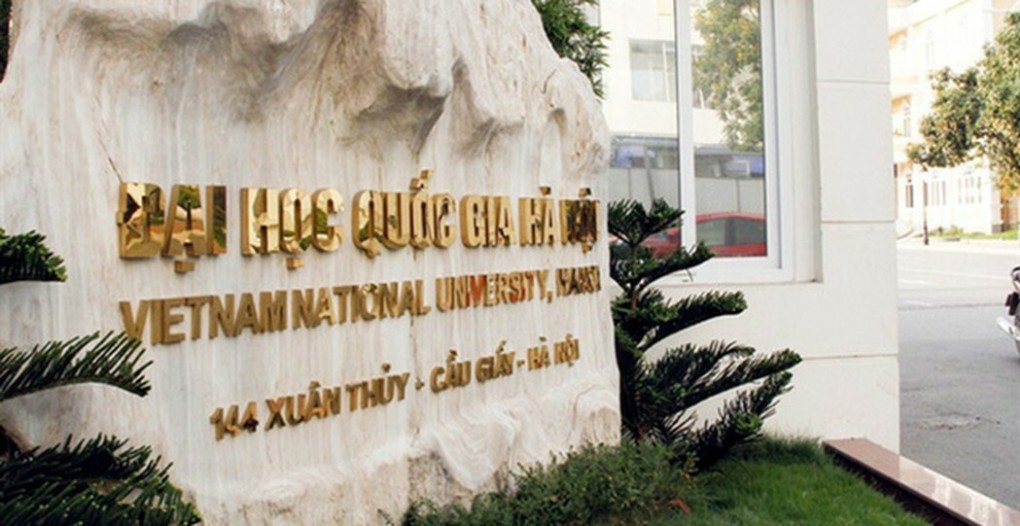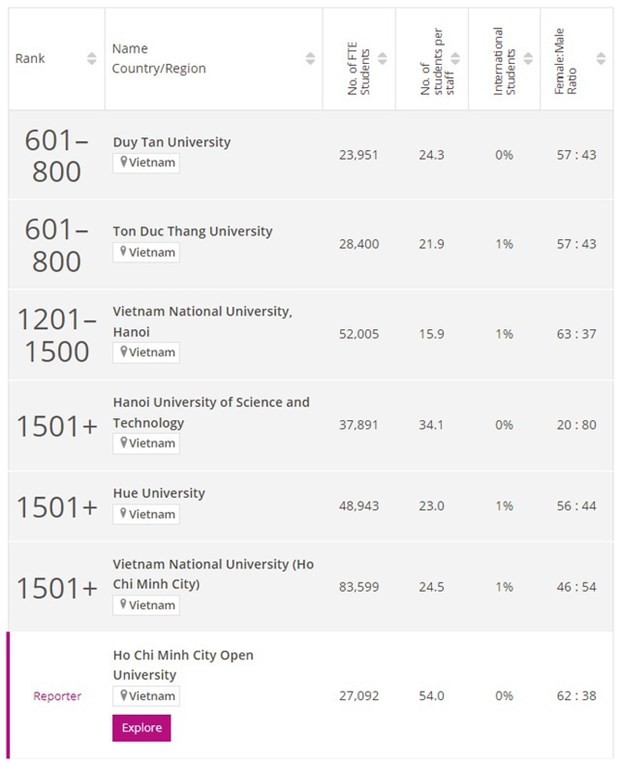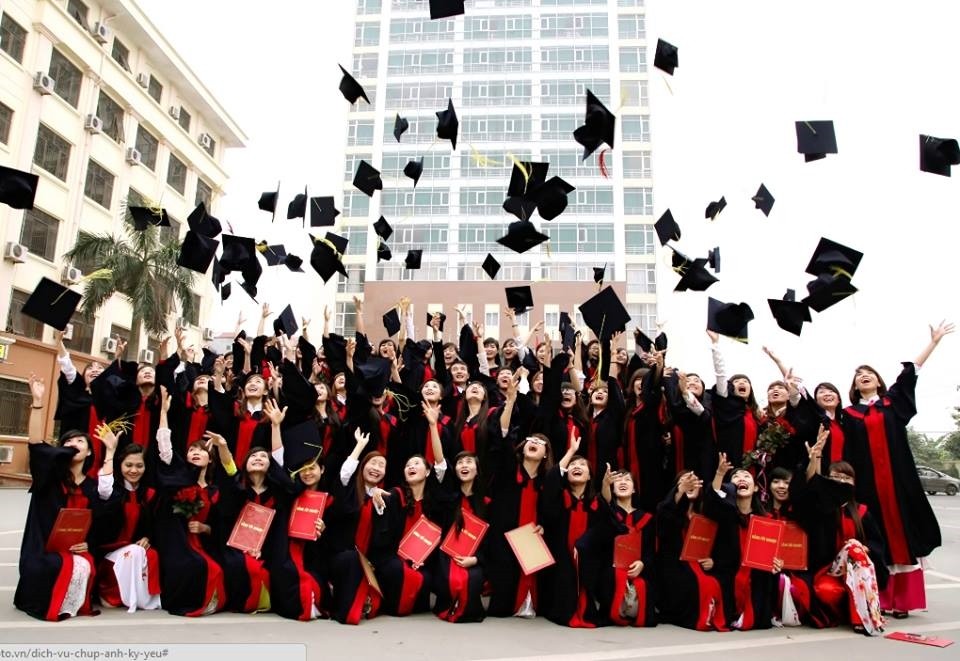Six Universities named in THE World Rankings
THE (Times Higher Education) is one of the most famous and influential university rating organizations globally, along with Quacquarelli Symonds (QS) and Shanghai Academic Ranking of World Universities (ARWU).
According to the latest announcement by THE, Vietnam has six higher education institutions in the world university rankings for 2024. The six are Duy Tan University in Da Nang, Ton Duc Thang University in Ho Chi Minh City, Hanoi University of Science and Technology, Vietnam National University in Hanoi, Vietnam National University in HCMC, and Hue University.
Vietnam National University in Hanoi (VNU) is named in the 1201–1500 range out of 1904 ranked higher education institutions, according to the published results.
 |
| Vietnam National University in Hanoi (VNU) |
1004 higher education institutions from 108 nations and territories are listed in THE 2024 rankings. THE uses the WUR 3.0 rating system this year, with several criteria modified in contrast to the announcement in 2023.
Oxford University (UK), Stanford University (USA), Harvard University (USA), Massachusetts Institute of Technology (USA), University of Princeton (USA), Imperial College London (UK), California Institute of Technology (USA), University of California-Berkeley (USA), and Yale University (USA) are the top ten universities according to THE.
Besides, THE provides region-specific rankings such as Asia University Rankings, Asia University Rankings, Latin America Rankings, and Young University Rankings in addition to the rankings of the greatest universities in the world (World University Rankings).
 |
| Six Vietnamese universities on the list (Source: Times Higher Education) |
Previously, THE released the Young University Rankings 2023 (THE Young UR 2023) rankings, which ranked the top young universities in the world on July 3 2023. This is a ranking of the top universities under 50 years old, with an emphasis on research investment and an expansion of the scope of global education.
With 23.7 points, the VNU remained the top-ranked school in Vietnam for the teaching criterion. This is the third year in a row that the VNU has maintained this position on THE Young UR rankings.
Shortcomings of Vietnam’s higher education system
Aside from its accomplishments, Vietnamese higher education still has some limitations.
With the educational curriculum continuing to emphasize theory above practice and knowledge application, it remains inadequate compared to the country’s socioeconomic development needs. That is one of the reasons why in 2020, Vietnam had 225,000 bachelor, engineer, and master’s graduates who were unable to find jobs or had to work in occupations for which they were not trained.
According to survey results of 60 businesses in the industrial services sector in Ho Chi Minh City on “Assessing the level of business satisfaction with the quality of students trained in the first year after graduation,” only 5% of the total number of students participating in the survey were rated at a very good level, 15% at a good level, 30% at an average level, and 40% at an unsatisfactory level.
Another issue is that many colleges have yet to adopt the learner-centered approach. Teachers continue to play the leading role while student engagement remains passive. The information overload situation and constant curriculum changes are also consequences of these teaching methods.
 |
| Illustrative photo |
The number of international publications by Vietnamese universities remains lower than in many other nations in the region. At the same time, the impact index of Vietnam’s scientific research projects is also lower than that of some other countries in the region, including Thailand, Malaysia, and Singapore.
The function of university school councils is still unclear, while the participation of state administrations in various activities, such as appointing board chairs, principals, salaries, and other science jobs, is still quite substantial. There are also issues stemmed from the lack of infrastructure and insufficient compensation for higher education staff.








